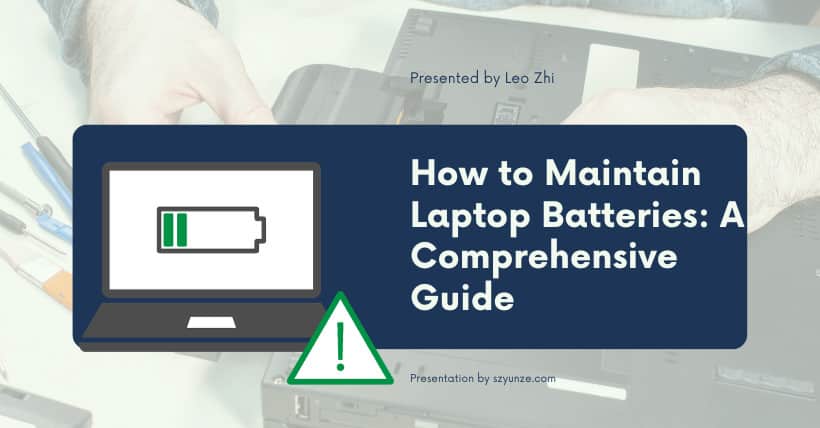Recently, a friend of mine had a really frustrating experience. The laptop, which hadn’t been used for a long time, couldn’t charge the battery anymore. Various methods were attempted, confirming that the battery was indeed damaged, and it was truly heartbreaking. Today, let me talk to you about the maintenance of laptop batteries.
01
Is it bad to keep a laptop fully charged while plugged in all the time?
Many people believe that maintaining a 100% full charge is considered “overcharging,” which can harm the battery’s lifespan, and this claim has some validity. The real issue with keeping it plugged in at 100% full charge is “storage de passivation,” which is especially severe at full charge. If you keep it plugged in at 100% full charge for extended periods, it can lead to depassivation. Also, high temperatures significantly accelerate depassivation and aging.
For users who frequently keep their laptops fully charged, there’s no need to worry too much because lithium batteries, even if continuously charged after reaching full capacity, won’t be affected. However, it’s crucial to pay more attention to temperature, as high temperatures are the real threat to batteries.
02
Should you remove the battery if you don’t use the laptop for a long time to extend its lifespan?
Absolutely. If you seldom use your laptop, you can remove the battery, but it’s best to keep it charged to at least 40% because batteries will naturally discharge over time. Store the battery in a cool, dry place, and ideally, take it out for a brief use once a month. Avoid waiting until the laptop battery is completely depleted before recharging, as it can shorten the battery’s lifespan or even damage it.
03
Is it necessary to completely discharge the battery before recharging to prevent the memory effect?
The professional term for discharging the battery completely before recharging is “deep discharge.” However, practice has shown that deep discharging the battery unnecessarily shortens its lifespan. Therefore, there’s no need to make sure you always discharge the battery completely before recharging, especially since modern laptop batteries are lithium-ion and don’t have memory effects.
By now, I believe you have a good understanding of how to maintain laptop batteries. In summary, when using your laptop, it’s best to follow these guidelines:
- Avoid depleting the battery completely before recharging to prevent excessive stress on the battery.
- If you occasionally use the battery, periodically perform a full discharge.
- If you won’t be using the laptop for an extended period, remove the battery and maintain it at around 40% charge.
- To extend the battery’s lifespan, reduce screen brightness while using the laptop and disable wireless, Bluetooth, and infrared ports when on battery power. Additionally, remove unnecessary peripherals and avoid running resource-intensive applications or games, as these can increase battery consumption.
04
Words in the End
In conclusion, the proper maintenance of your laptop battery can significantly extend its lifespan and ensure that it functions optimally. By following these guidelines, you can help prevent unnecessary wear and tear on your battery, ultimately saving you time and money in the long run. It’s worth noting that while the tips mentioned here are effective, there are also various external factors that can affect battery life, so keeping your laptop in a controlled environment and following these guidelines will give your laptop battery the best chance at a long and productive life.
Remember, maintaining your laptop battery is not just about preserving its capacity; it’s also about being environmentally conscious. By extending the life of your battery, you reduce the need for replacement and, in turn, minimize electronic waste.
So, take care of your laptop battery, and it will take care of you.
Related:
- The Risks of Leaving USB Drive Plugged into Computer
- MSI RTX 5090 Recall? Fire Hazard Rumors Explained!

Disclaimer:
- This channel does not make any representations or warranties regarding the availability, accuracy, timeliness, effectiveness, or completeness of any information posted. It hereby disclaims any liability or consequences arising from the use of the information.
- This channel is non-commercial and non-profit. The re-posted content does not signify endorsement of its views or responsibility for its authenticity. It does not intend to constitute any other guidance. This channel is not liable for any inaccuracies or errors in the re-posted or published information, directly or indirectly.
- Some data, materials, text, images, etc., used in this channel are sourced from the internet, and all reposts are duly credited to their sources. If you discover any work that infringes on your intellectual property rights or personal legal interests, please contact us, and we will promptly modify or remove it.



